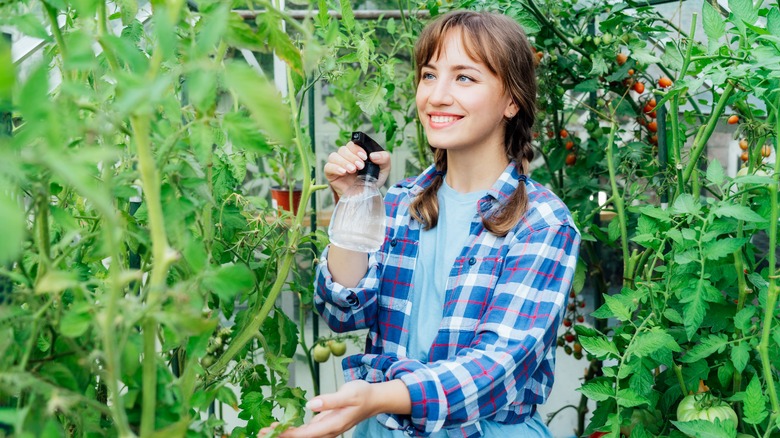In the realm of vegetable gardening — or any type of gardening for that matter — we’ll do whatever it takes to keep our green babies growing. We’ll mulch, fertilize, and water our gardens, and practice weed and pest control. You may have even tried a host of materials or products — both traditional (intended for gardening) and unconventional (created for a different purpose) — to ensure your garden is healthy. One unconventional product, in particular, is aspirin.
You might be surprised to learn that aspirin, the common over-the-counter pain reliever, has a valuable place in your vegetable gardening toolkit. While it won’t cure all your garden’s aches and pains, it can certainly help your vegetables thrive. Of course, you might wonder why aspirin would work wonders in your garden.
Aspirin contains salicylic acid, a compound that naturally occurs in plants and plays a crucial role in their defense against diseases such as blight. When used in your garden, aspirin can boost your vegetable plants’ immunity, making them more resistant to common pests and diseases. It can enhance seed germination rates as well, giving your vegetable garden a head start by encouraging quicker and more uniform sprouting.
How to safely and effectively use aspirin in your garden

Now that you understand why aspirin can be a game-changer in your vegetable garden, it’s time to make your own aspirin solution. Mix three regular aspirin tablets into 4 gallons of lukewarm or distilled water. Stir until it’s completely mixed. You can use this solution as a foliar or misting spray on your vegetable plants once every few weeks in the morning. Spray it evenly on both sides of the leaves, making sure to cover the entire plant.
Before transplanting or during stressful weather conditions, you can use the aspirin solution as a soil drench. Pour it at the base of your plants, allowing it to soak into the soil. As a seed treatment for germination, spray the aspirin solution on the vegetable seeds before planting or directly on the seed bed.
While aspirin can benefit your garden, avoid overusing it. Stick to the recommended solution formulation and frequency of use. Also, when buying aspirin for your garden, opt for uncoated tablets as they dissolve more easily in water. Remember, aspirin is a supplement, not a substitute for good gardening practices. It won’t replace proper soil preparation, watering, and pest control. Instead, use it to complement your efforts by fortifying your vegetable plants against stress and diseases. So, the next time you reach for that aspirin in your medicine cabinet, consider sharing some with your garden.
